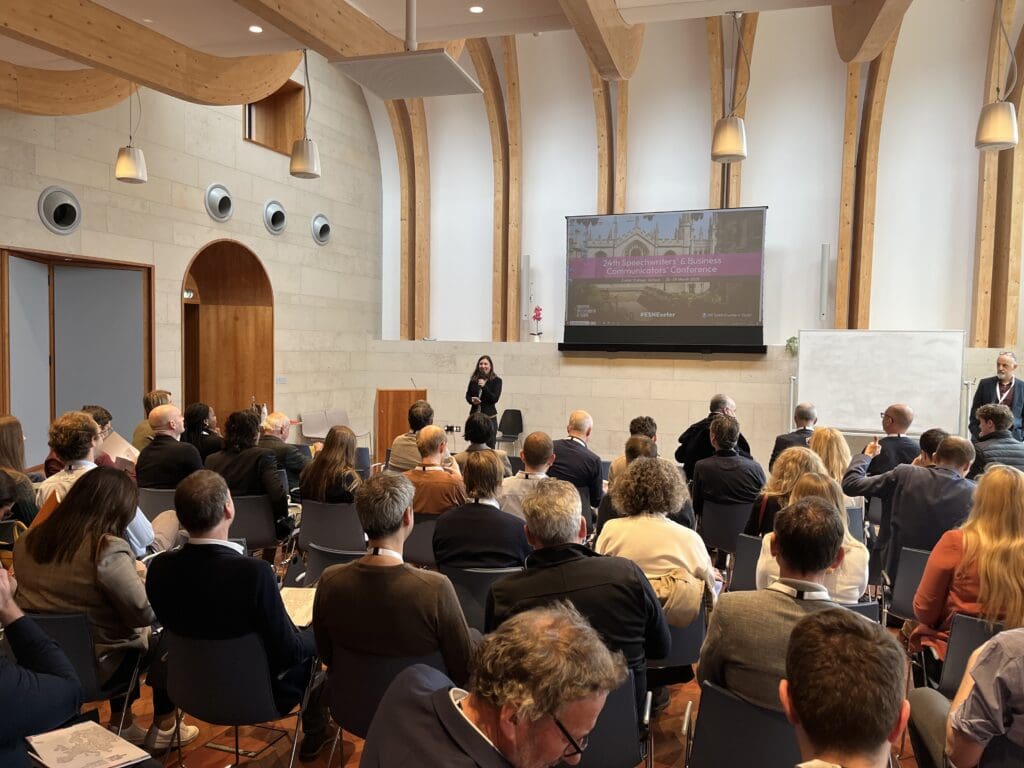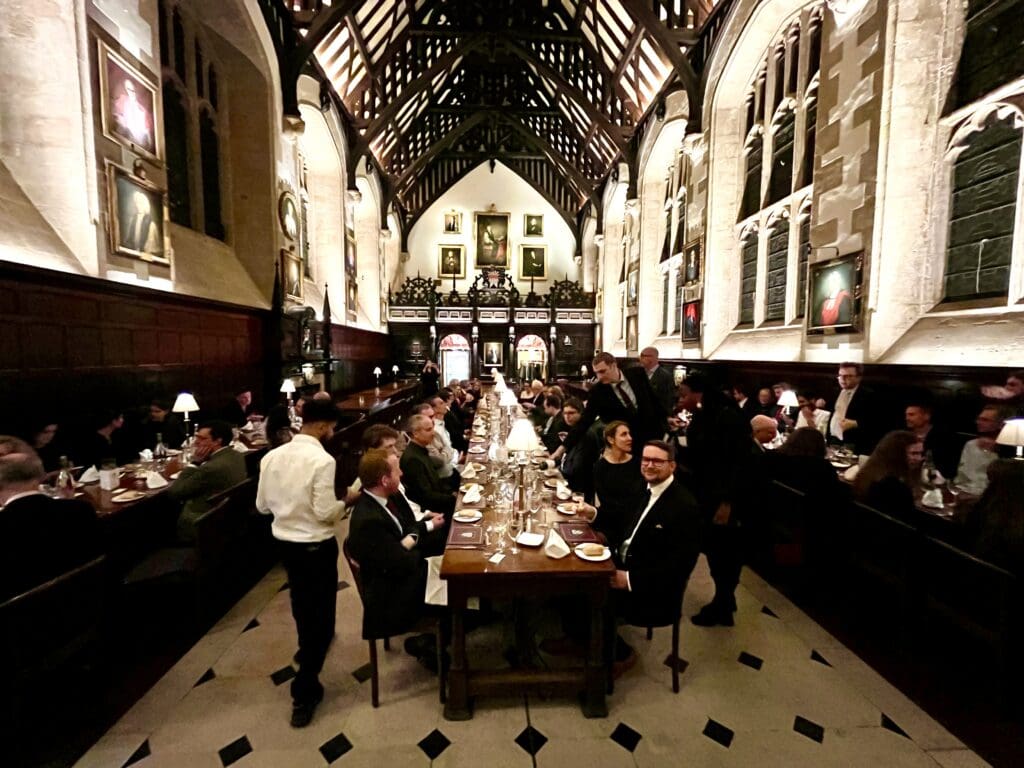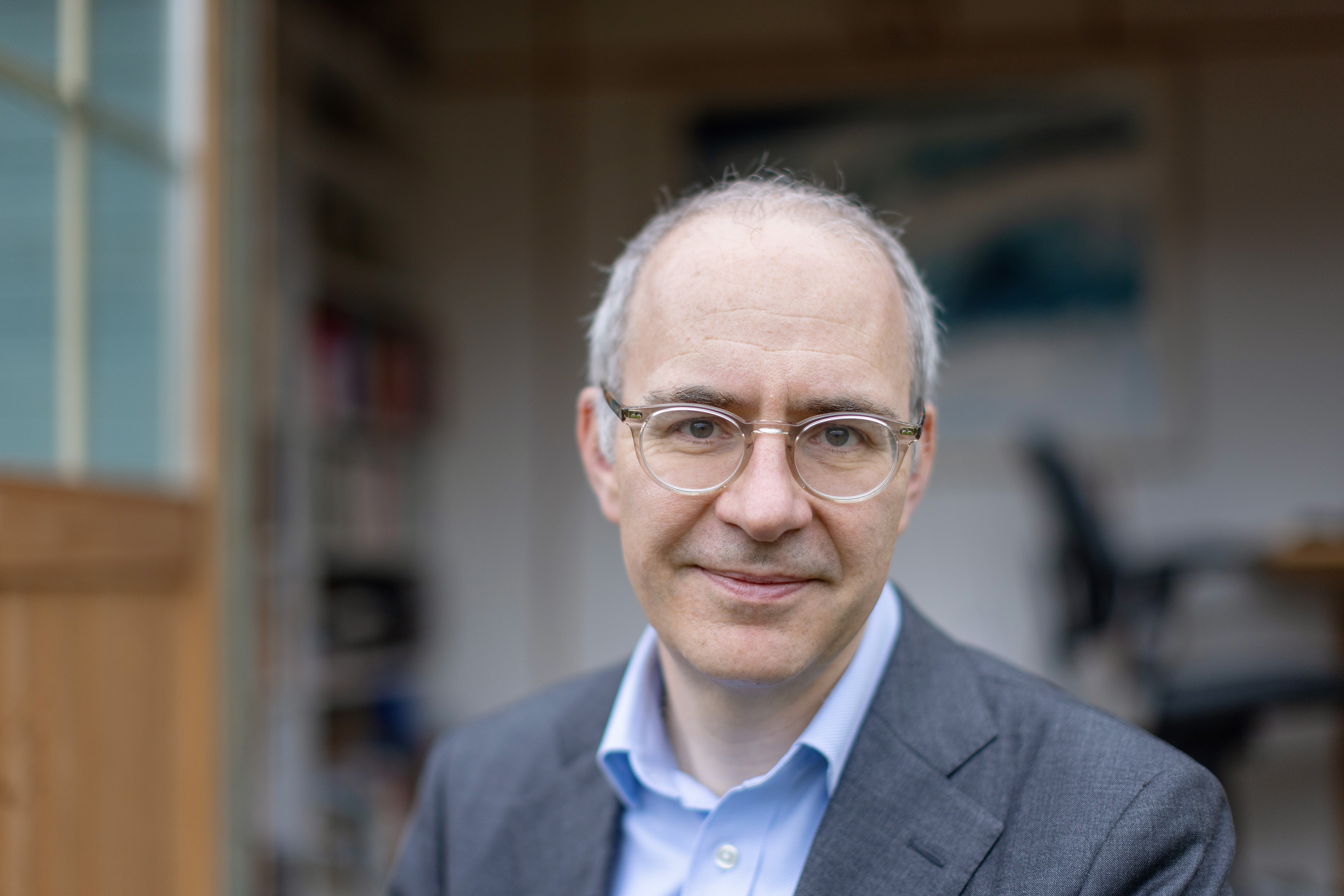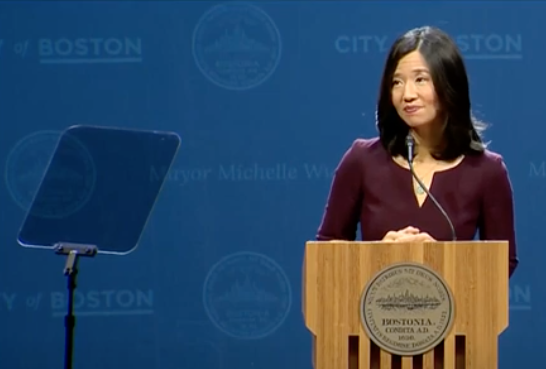‘Does European Speechwriting Have a Future?’
April 01, 2025
Asked and answered, in this gonzo account of a surprisingly cheerful European Speechwriters & Business Communicators' Conference last week, in Oxford.
Tuesday. I am on a train. Behind me is a world full of chores: the kitchen lights that flicker like the world’s worst, most desperate, domestic disco; the disintegrating garden shed that I hope will last another 12 months, but probably won’t; the family Volvo in the garage with its electrical innards spilled in every direction … again.
I am heading to Exeter College, Oxford, for the annual gathering of the European Speechwriter Network. As my domestic woes fall behind me, and I speed closer to some 70 people who think a bit like me, I should be feeling lighter … but I am not. The final speech of the conference is titled: “Does European Speechwriting Have a Future?”
The thing is, there is a general rule of thumb about headlines which end with a question mark: that the answer is almost always: “No.” “Is Elvis Alive?” No. “Did the CIA Conspire to Kill Princess Diana?” No. “Unexplained Flashing Lights in the Sky: Are Aliens Among Us?” No. “Does European Speechwriting Have a Future?”
Does it, corporate bean counters?
Does it, populist demagogues?
Does it, ChatGPT?
My phone pings. Daniel Mouqué, European Commission speechwriter and the man who will deliver that final (final?) address has just accepted my LinkedIn connection request. I message to tell him I’m looking forward to his talk. I’m being British, I’m being polite. He tells me he thinks that I will like what he has to say. I hope I find it convincing too.
I look up and see I’ve reached Reading. It’s pronounced redd-ing, not reading, but I take it as a good omen anyway, put an upbeat tune through my earbuds and open the car magazine I just bought. After all, I may need a new car quite soon…
***
I am stopped by a woman as I walk away from Oxford train station.
“Can you direct me to St Anne’s College?”
I cannot, but I pull my phone out, crank up Google Maps… and find I still can’t.
“Um, it says you have to walk back along the train tracks,” I offer, ridiculously.
Then a balding man stops next to us. He stares at me, then shouts: “Lech!”
I have no idea who he is.
“We’ve been talking on LinkedIn. It’s Daniel Mouqué!”
“So you are! Do you know how to get to St Anne’s College?”
“No idea! I’d know if we were in Cambridge.”
The woman gives up on us: two balding men fighting over who can be most useless to her.
We walk the 10 minutes to our accommodation in Exeter College—the blind leading the blind with an assist from Google Maps. We fall into talking about the Signal messaging scandal. Daniel reports that the Brussels crowd, the leaders of Europe, are in a bit of a flap.
“Woken up, have they?”
“I’d say so.”
Daniel is relieved to be in Oxford. The EU is planning something big, he confides. Something big in the EU, means some big speech for Daniel. But, as it happens, the great and good of the EU cannot quite agree, and won’t for at least another week, so Daniel can be in Oxford.
“Something big? Something military?”
“I could not possibly say,” Daniel demurs.
I contain my excitement, and take possession of my room for the next few days.
The single bed is hard, the student who occupies the room in term-time has marked his territory by leaving a sock under the bathroom sink, but the view is lovely and there is even a fridge. The fridge is made by Lec. For those who like clutching at straws, the good omens are starting to add up.
***
Dinner at a pizza place with some 20 speechwriters crammed in a corner. Immediately around me is a Brit who writes speeches for the EU in Copenhagen, Denmark … an Englishman with a Scottish name who lives in Scotland and writes for folk in Switzerland … a Swedish lady who is nearing retirement and who has just become a speechwriter (“My first and maybe last conference!”) … and a German man who writes for the European Central Bank in Frankfurt. Thirty minutes earlier I knew none of them, apart from the Copenhagen Brit, who I last saw 32 years ago. We went to school together. Neither of us had known the other had become a speechwriter.
Nobody is talking about the future of European speechwriting. The closest we come is a brief chat about AI, when one of our number says he finds it helpful to get ChatGPT to critique his writing.
We talk about the beer and debate whether red wine will go with anchovies (it does). We enjoy our pizza and we trade war stories about our jobs. We agitate to get to the pub for more drinks, and we test the apparently infinite patience of the waiting staff by getting the bill split so that everyone pays exactly for what they consumed. We move on, eventually.

In the bar, there are new conversations with new folk. There is the Brazil-based speechwriter who is trying to work out how to be a UK-based speechwriter, there is a German table—fully appreciating the whole new world of beer that a good British pub offers to the discerning Continental—and there is one of speechwriting’s great personalities holding court: Antti Mustakallio. He styles himself as Finland’s only speechwriter, and yet somehow holds his own conference for speechwriters in Finland. Who goes? Who knows? It doesn’t matter, it’s just his patter.
Still no talk of the future of European speechwriting. This is good. My gluten free beer, ordered without scrutinising the label closely enough, is not. I repair the damage to my tongue with other beers, and I go “home” happy or, at least, happier.
***
Wednesday. There is a choice of pre-conference workshops. In one room is the former speechwriter to the former British Prime Minister David Cameron, Jessica Cunnliffe. In my room we have Guy Doza: young, handsome, knife-sharp and funny. He has one book published—How to Apologise for Killing a Cat—and another about to be released—The Language of Evil: How Dictators Manipulate the Masses and Wield Power Through Words. I’d love to hate him, but can’t.
We spend a day looking at the dark side of our craft. Quotes lifted from Mein Kampf which, removed from context, seem fairly reasonable … then some of Goebbels greatest hits … then a look at some speeches designed to get people to volunteer their lives (one that succeeded, and one that did not). We try to spot the difference between shocking quotes from dictators, and shocking quotes culled from Disney (I’m looking at you, Pocahontas). We rewrite our favourite songs in the form of passionate speeches, including interpretations of both the Polish national anthem (by a Polish man writing for the Dutch government) and God Save the Queen (not the British national anthem… we have a king now… but the song by the Sex Pistols).
The workshop is both fun and sobering. We leave it reminded how easy it is to turn the ancient art of rhetoric to evil. Later, we all go out in Oxford again, to have more fun and be less sober.
Still no talk of the future of European speechwriting.
We talk about the delegate who somewhat embarrassed himself last year, and the reason why Germans lock eyes as they clink their beer glasses (to fail to do so is to condemn yourself to seven years of inadequate lovemaking—a punishment that clearly does not fit the crime). We explore how the value of a speech is boundaried by time, by the moment of delivery: most speeches either succeed in the moment or fail forever. Art, on the other hand, can be considered junk at the moment of creation and yet still be recognised as a work of genius decades later. So it goes.
We talk about dealing with bad feedback, bad power dynamics and bad life choices. KBO, as Churchill would say: Keep Buggering On.
One of our number, a Dutch lady, spots a poster for an Oxford poetry society meeting that evening. She calls up, secures a slot at their open mic, and is by some distance the best of the evening … in her second language. She is a triumph of spontaneity and skill.
The night ends only when the bar staff end it.
***
Thursday. Conference proper. We hear about the “art of listening,” the power of populist language and “the demagogic genius of Donald Trump.” A French speechwriter spills pure radiant happiness as she relates her journey bringing a French athlete’s life and words to life at the Paris Olympics. Speakers look at AI, hold it up to the light and dismantle it entirely.

“Anybody with half a brain can write a speech,” declares a former BBC journalist, who points out that AI-produced speeches are left-hemisphere-only, half-brained efforts, devoid of human context, connection or relevance. He highlights that one of the leading AI content generation companies uses testimonials from real humans. He remarks that if AI-generated content truly held value for humans, the company should get AI to write its testimonials too. “They don’t,” he says, “because we wouldn’t trust it.”
The Q&A produces one further circuit-breaker: “Turning up with an AI-written speech is like turning up at a first date with plastic roses. It’s cheap.”
A German speechwriter picks up the theme with a fiercely intelligent take. His talk is titled: “The rhetoric of AI, or: the soul never thinks without an image.” He derides “expensive suits with cheap ideas” who sacrifice the chance at human connection to shave a few euros/pounds/dollars from their budgets. “AI is not intelligence,” he says—it is a statistical analysis of the probability of letters and words joining together: “AI does not think, it is just doing math.”
He also probed at the dark underbelly of rhetoric, quoting Aristotle: “Rhetoric is not built on truth but on plausibility.” He pointed out how rhetoric builds an unspoken agreement between speaker and audience that a speaker is plausible, whether what they say is true or not. “In Germany, we learnt this the hard way … in the US, hopefully they don’t.”
AI, he said, is a plausibility machine in a world where the truth is often implausible. To the question: “Can I say that?” AI has no answer. To the question: “Should I say that?” AI has no answer. AI can generate 49 synonyms, but it never once knows the right word. “AI does not see, does not think and has no soul… it needs human judgement, it needs a human in the loop, and speechwriters are the humans in the loop.”
Later, a French communications consultant, still mildly traumatised from the night before having been presented with wine in a pub pint glass, holds up a UK three-pin plug adaptor … and extols our role as “cultural plug adaptors.” Somebody else draws on the lesson of a Brazilian mayoral election to warn of the danger posed by the next generation of populist politicians: “Imagine Donald Trump and Andrew Tait in the same person: someone adept at both rhetoric and TikTok.” I physically shivered.
Also said at one point or another:
“To enter the heart, you have to speak from the heart.”
“The world has changed, so the way we have to speak to the world has to change.”
“It is not about what you say, it is about what people hear.”
It is, you know, it really is.
Before the day is done, there are workshops to help speechwriters embody the language of Shakespeare, to take the lessons they can learn from improv comedy, and on “how to be evil” by one of the least evil people I know.
And then we are sent off with six words and phrases: “Brad Pitt, bullshit, voice of God, ersatz mensch, stupid and Dissoi.” This evening we will gather for a formal dinner in Exeter College’s spectacular dining hall. After dessert, around a dozen of us will deliver a speech. It can be on anything we like, but it must last no more than two minutes and it must include all six phrases. I doubt any of us know what Dissoi means. It doesn’t matter, every speaker blends the word in seamlessly. The competition is eventually won by a Canadian, who created a poem out these random words that delighted us all.

***
Thursday. Then Friday. For around 30 of us, the night is still young. We take over a wing of “Thirst,” an Oxford cocktail bar and night club.
Finland’s only speechwriter puts a bottle of beer in my hand and sits down. He wants to dance. I crane round to look at the dancefloor: two people populate it. I appeal to his skill in rhetoric and understanding of the concept of Kairos, otherwise known as “timing”.
“If we go up now, we will be on our own: two men on an empty dancefloor.”
He reluctantly concedes. We talk, and I start to discover the truth about Finland’s speechwriting scene. But then, before it can be fully laid bare, the beat and syth that announces “Sweet Dreams (Are Made of This)” by the Eurythmics drops from the DJ. I catch a Dutch EU Commission speechwriter glance at the dancefloor and that is all it takes. Antti needs no encouragement, the Dutchman needs very little and before Annie Lennox has declared that “everybody is looking for something” we are on floor.
As every speechwriter knows, three is the magic number. Aristotle would have called it tricolon. It works in speeches, and it works on dancefloors. In a few minutes we have 10 or more speechwriters pulling moves. 30 minutes later, there are a scant handful left in their seats. 15 minutes after that and there isn’t a speechwriter in the house who isn’t at least trying to move in time with the beat. Locals join us, dance with and among us. At one point a member of staff randomly gives a speechwriter a handheld roman candle spewing sparks: his limbs fly in directions unimaginable, his face a picture of unbridled rapture.
By 2.15am our numbers have thinned to six or seven (memory fails me), and includes a Frenchwoman, a German lady, Finland’s only speechwriterTM, a Brit, a half-Polish Englishman and an English Scotsman. There may, or may not, have also been a Swede.
Some of us make it to breakfast a few hours later.
***
Friday. Last day.
In the end, I did not truly need to listen to Daniel’s closing speech to know if European speechwriting has a future. I did listen and it was an excellent speech, with energy and fire and fun – and several stood to applaud at its end. But I did not need it anymore. I didn’t need it because I had already seen the future of European speechwriting: I had just spent the preceding days hanging out with it … with them.
That future is thoughtful, witty and blindingly intelligent. It is sensitive and vulnerable, yet determined and unbowed. It is vital, and it is fun. It likes a beer, and it can dominate a dancefloor. It’s one hell of a future and you should come and see it yourself sometime. Next year: St Catherine’s College, Cambridge.
I am already looking forward to Cambridge as I finally, reluctantly, head home.
My car, still in the garage, is now mostly made of error codes. My kitchen should probably carry an epilepsy trigger warning. And my garden shed is damp enough to start a mushroom farm.
But I can deal with all of that in the future.
And the future doesn’t seem so bad anymore.
In fact, I feel quite good about it.
***
Lech Mintowt-Czyz runs Speech Success, a speechwriting firm based in the United Kingdom.




